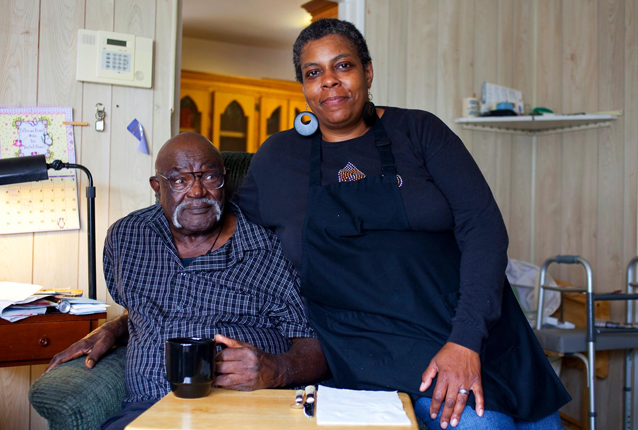A new report released by researchers at Rutgers University Center for Women and Work breaks new ground in studying the growing field of care work by asking home-care consumers to define “quality” care and describe how care-worker training affects the quality of care they receive. Through interviews with both care consumers and attendants, the report makes the case that home-care attendants must obtain training that is both hands-on and specific to the consumers’ conditions. This finding is a call to action for policymakers overseeing home-care systems to ensure that home-care attendants actually receive access to adequate training.
The research was commissioned through a grant from the Jobs With Justice Education Fund. As part of the study, Widener University professor Linda Houser interviewed consumers and attendants associated with the Liberty home-care agency. The study was conducted in Pennsylvania partly because several years ago, the state legislature slashed home-care budgets, resulting in the closure of an 80-hour joint attendant-consumer training program called Building Bridges, administered by the attendants’ union. Now Liberty’s attendants only receive a three-hour pre-employment training. Houser’s research makes a compelling case for the reinstatement of the Building Bridges program:
“While even the three-hour training provides attendants with some useful general knowledge with which to begin, attendants lack condition-specific knowledge, as well as hands-on knowledge. In some cases, this leads to some in-home trial-and-error that may, in turn, contribute to failed consumer-attendant connections; frustration, anxiety, and shame on the part of consumers and attendants; and even a risk to consumers’ physical well-being.”
The consumers interviewed are all receiving home-care because of their disability. Those interviewed were clear about the risks to their physical well-being when attendants were not properly skilled and cited a range of trainable skills that were required for quality and safe care. One consumer told Houser that while she tries to show new attendants everything, “If they don’t know, I’m in trouble. So more medical background would be great.”
For the consumers who went through the Building Bridges program, their enthusiasm and strong recollection of the training content reveal the value of the hands-on, joint consumer-attendant model. One consumer noted:
“I could tell the quality by how the workers were trained. I guess that is why I brought two of the workers back because they were trained [through Building Bridges].”
In addition to underscoring the importance of adequate training for quality care outcomes, this new report from Rutgers lends a consumers’ perspective on the impact of care-worker turnover. Consumers identified stability as a key component of quality of care. One consumer explained, “I don’t like getting to know different ones. It really throws me off, you know? Then I need to show them the ropes.”
Given the findings of prior research that improving wages and benefits for home-care workers reduces turnover, these consumer preferences for stability bolster the case for raising standards for home-care providers. As one consumer asserted, “I think this work should start out at $15/ hour. Just from a human perspective.”
The research makes a compelling case for the need to modernize and standardize the care workforce, both for the benefits of the workers themselves and the people they care for.






